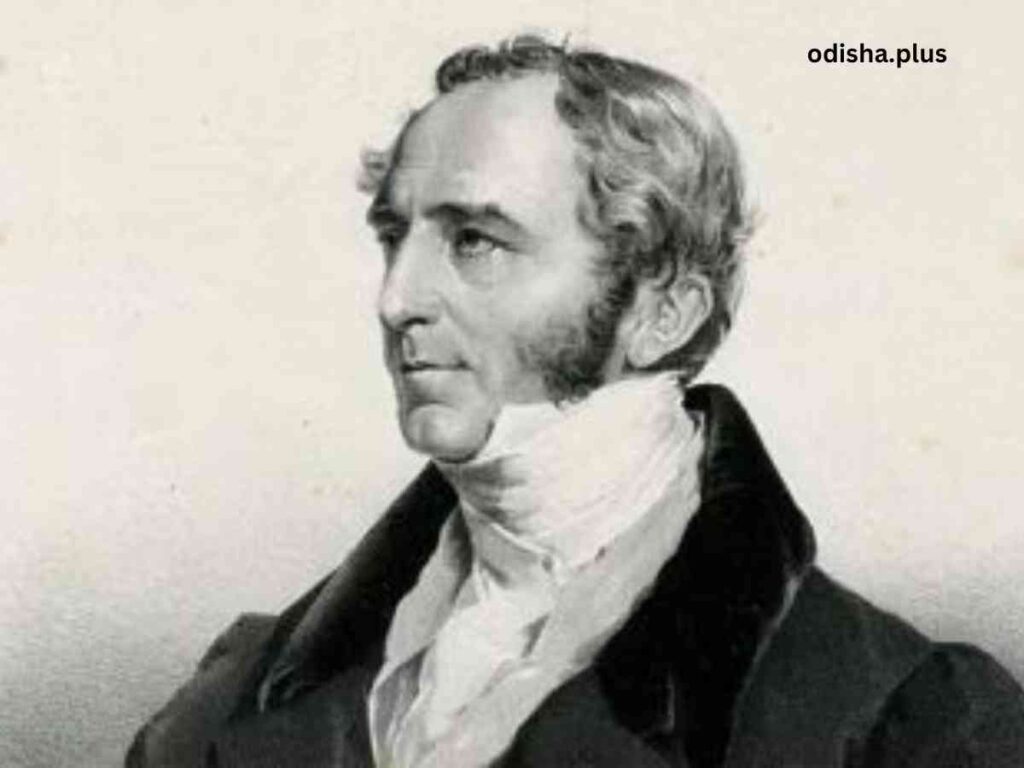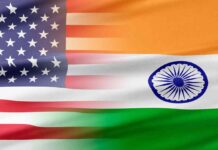As per legend, nobody could remain impartial when Mahabharata war took place except few like Balaram and Rukma, the RavenshaWians of yore are facing a similar moment now after the remarks made by the Central Minister
Abanikanta Mishra

There are events in history when it becomes well nigh impossible for someone to maintain a neutral stance. As per legend, nobody could remain impartial when Mahabharata war took place except few like Balaram and Rukma. The Ravenshawians of yore are facing a similar moment now after the remarks made by the Central Minister. The brigades that advocate a change of name toeing the line of the Minister rest their case to discover a sense of indigenous pride, which the colonial vestige is allegedly trying to eclipse. Those like this writer fear a loss of heritage and an expression of ingratitude in forgetting Ravenshaw.
All evaluations are made in a context. Rules of dialectic prompt us to follow the endless path of evolution. When British occupied Orissa (as then called), Maratha bargis were looting us. If we had a grievance, we would go to the Maratha Subedar at Cuttack seeking justice. When British came, Marathas fled in utter consternation.
To understand the state of education then, let’s flip back to the account of Mrutunjay Ratha in his biography of Gourishankar Ray (1835-1917), “During Gourishankar’s childhood, general education in the state was so abysmal that there wasn’t a single elementary school. Available writings were in palm leaf scripts or Parsi notes written on Harital Paper (prepared from mineral ore). There was no printed book in the local language.” As a result, no Oriya qualified for a government job.
As O.S. Malley, compiler of the District Gazetteer, reflects: “When we occupied Orissa in 1803, not a single Oriya was in the government service. Parsi was used in courts and government offices. By an enactment in 1805, both Parsi and Oriya were allowed for benefit of Oriya population. Office assistants skilled in Oriya were needed. These people perforated their versions on palm leaves but couldn’t write on paper with a pen. They were slow to update in new ways. Besides, they didn’t know the accounting norms framed by the British for upkeep of revenue records. As a result, the cream of government jobs fell into Bengali hands. Attracted by lucrative salaries, they started living with their family in Orissa leaving their homestead behind.”
In the 19th century, Bengalis fought all out to make Oriya language extinct. By that time, Jagannath Das had already composed Bhagabata, Sarala Das Mahabharata, Upendra Bhanja his ornamental poems: to name a few. All these literature could have been extinct but for the help of colonial British.
Let’s recollect historian Hunter, “There were no formal schools in Orissa prior to 1838, except for a few run by Christian missionaries. The territory with a population of 25 lakh was a dark dungeon packed with superstitions. In some corner of a rich landlord’s mansion, a pundit taught Sanskrit to a group of pupils. In large villages, makeshift study hubs functioned under banyan trees. About half a dozen students practiced alphabets on dusty earth, and memorized multiplication tables in loud choruses. One punching a couple of sentences on a palm leaf was pronounced a scholar.”
G.F. Cockburn, Commissioner of Orissa, sent a report to the Secretary, Government of Bengal on February 23, 1859, in the aftermath of Calcutta University’s establishment: “Lakh and lakh of rupees have been spent in every division of Bengal except Orissa.”
This was the background when Ravenshaw opened schools to expand the frontier of education. However, we couldn’t hold the gift for long and soon relapsed to a state of limbo. Let’s quote Surendra Mohanty to understand what it means:
“Ravenshaw College was slated for closure in 1880 because no student passed B.A. examination for two consecutive years. Government decided that if the trend continued for the 3rd consecutive year, the college would be wound up. Commissioner Ravenshaw wasn’t around. Luckily, Durga Charan Sahu passed B.A. that year. Principal Azar was so overwhelmed with delight that forgetting Durga Charan’s name, he danced around the College shouting aloud, ‘He’s passed! He’s passed!’ Law College faced similar plight.” (Translated)
A key literary figure in Orissa has singled out Kapilendra Dev as the sole purveyor of Oriya identity whom the nation has not paid adequate honours. No question asked. However, deifying Kapilendra Dev, or for that matter any other luminary of Odisha, doesn’t need to vilify Ravenshaw. There is no debate on the contribution made by Ravenshaw in the field of education. Even the pro-change contingent admits this. His role during the great famine (Na’anka Durbhikhya) is the plea to demolish him. Many alumni of Ravenshaw College have already clarified that the role of kings and zamindars who hoarded grains, and the role of Lieutenant Governor are other contributory factors to loss of life during the famine.
Even if Ravenshaw is to blame, why look the glass half-empty? Why forget the fact that support of Commissioners like Beams, Ravenshaw and Cockburn were crucial to save the Oriya language? Why forget that likes of Gourishankar and Madhusudan supported by the native kings could unite the Oriya speaking tracts because some colonial personage like Curzon supported them? If you question their loyalty to the British, what option they had? Are you in denial of the fact that loyalty for the British was a part of 19th political ethos? In fact, Congress was envisioned as Her Majesty’s opposition.
Another shred of argument advanced by the pro-changers attacks on colonialism instigating a systematic purge of colonial symbols. Who likes the colonial masters levying salt tax or orchestrating a Jallianwala bagh massacre? In our own state how mean the British were, exiling the Gajapati of Puri to Anadaman where he died pitifully. They could have auctioned the Puri temple to a Bengali Zamindar but for scintillating legal manoeuvring by Utkal Gourav Madhusudan Das.
Take a pause before hating them more. What about banning the dreadful custom Sati through The Bengal Sati Regulation in 1829 by the then Governor-General Lord William Bentinck? The great grandmother of Madhusudan had committed Sati few years before the regulation came. Didn’t British play a positive role in the area of women emancipation and fighting orthodoxy? Is it not because of British we had an early industrialisation and the Railways? Down the ages, Jo Jeeta wohi Sikandar. They were Sikandar then. Now, we are our own. In such inexorable mix of good and bad, Ravenshaw was a benefactor, a lover of Oriyas.
Moreover, how many colonial names you want to destroy? After Ravenshaw University, are you eyeing at Ravenshaw Collegiate School? There is also St. Stephen College at Delhi. XIMB is in the backyard. They are a galaxy in the form of schools, college and hospitals. What about our own colonial etiquettes starting with our sartorial sense? We are certainly not doing away with English language anytime soon. The world will not let us do so.
Everywhere, we need a translator from another language to English. Let’s try to grow up rather than tampering history and spread the hate campaign. May Ravenshaw sahib rest in peace? We are talking about ‘Odia Asmita’ because people like him saved the Odia language. Else, some of us might be talking in Bengali, some in Telugu and some in Hindi. We could have lost our Bhanja, Radhanath, Fakir Mohan and Meher; not to speak of Jagannath Das and Sarala Das.
(The writer is a retired bank officer based in Bhubaneswar)
























